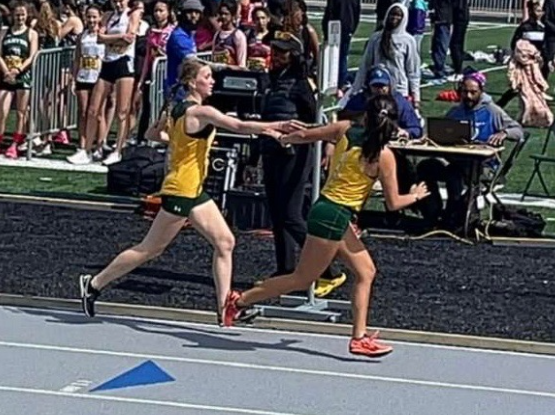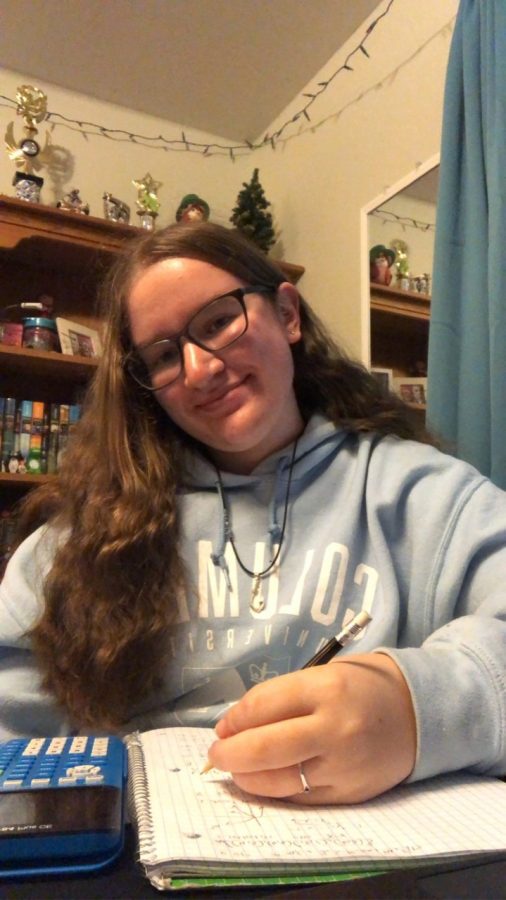Tutoring opportunities provided for students
Dani Burton works diligently to complete her trig/pre-calc classwork. She was a tutor in middle school during her time in National Junior Honors Society. PHOTO CREDIT: Dani Burton
September 24, 2020
The Covid-19 pandemic has created the largest disruption of education systems in history, according to the United Nations. Over the course of a summer, students and teachers were expected to familiarize themselves with a brand-new method of learning.
As we embark on a new school year filled with unexpected twists and turns, students may be filled with anxiety about the new form of education. A simple way to cope with this emotion is to enroll in tutoring, which enables one-on-one time with an instructor to focus on academic areas of discomfort.
Ted Rush, senior and current tutor, states that the common goal and duty of an instructor is to, “assist whoever needs some extra help in school whatever it may be. Not only that, [to] try [their] very best to make sure everyone feels welcome.” The society is filled with people equipped with the skills to teach all subjects and is overseen by teachers who can step in if necessary.
New Jersey’s Department of Education also encourages the enrollment in private teaching because it can meet the specific needs of a student. They add that “tutoring can offer students individual attention to help them learn in different and perhaps more effective ways in a smaller environment. The instructor also provides additional academic interaction focused on the individual student.”
If any form of reinforcement is needed in any area of academics, when we return to school, tutoring will be held in room E304 every Wednesday after school from 2 p.m. to 3 p.m. As for online assistance, English teacher Mr. Peddicord, says he will need to, “ meet with the current members of NHS (National Honors Society) to work out the logistics,” but is thinking that, “tutoring could either be held in a Teams room or in one of the breakout rooms between the tutors and the students.”
Caroline Ulmer, senior and member of NHS, recommends this method of private instruction to, “anyone who is struggling. Sitting down with a fresh pair of eyes and slowly working out problems can be beneficial.” Adding to Ulmer’s thoughts, Rush states that this form of education can be valuable for, “anyone who is seeking extra help on schoolwork.” He mentions that student-on-student learning is exceptionally helpful because peers can relate better than students and teachers.
Peddicord has high hopes for the virtual version of this program. He voices that he is hopeful, “any virtual tutoring meetings work just the same as in-person tutoring.” Peddicord also believes this form of guidance, especially this year, will help as we “navigate all the technology involved with virtual learning.”
The English teacher assures students that despite nerves regarding virtual learning, those working as instructors for the school will be making the most out of their time with those who need assistance.












